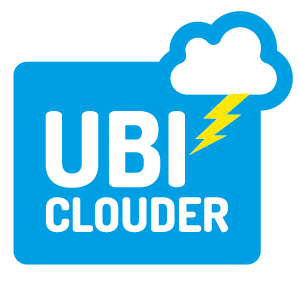Introduction
KYC (Know Your Customer) is a regulatory and operational process that financial institutions and regulated entities use to verify the identity of clients, assess risk profiles, and ensure compliance with anti-money laundering (AML) laws, counter-terrorism financing (CTF), and other regulatory frameworks.
Salesforce is a leading customer relationship management (CRM) platform, empowers businesses to efficiently manage customer interactions, sales, marketing, and more.
In Financial Services Cloud, there is a data model. As it says it is a data model without KYC functions included. You have to develop everything yourself.
FlexiKYC allows to integrate Know Your Customer (KYC) processes easily into any Salesforce CRM or Financial clouds creating tremendous value by reducing sales cycles and easing customer experience.
Why implement KYC in Salesforce ?
KYC with Salesforce CRM and Communities
Implementing Know Your Customer (KYC) processes within Salesforce CRM offers substantial strategic and operational benefits for financial institutions and compliance-driven businesses. Here’s why this integration is particularly impactful:
⚡ 1. Enhanced Customer Experience
- Faster Time-to-Value: Customers complete onboarding without redundancy, with dynamic forms that adapt to their profiles
Self-service Communities: Clients securely upload and manage documents via a branded portal with double authentication and legal compliance
Multilingual and Cross-jurisdictional: Supports global operations without compliance bottlenecks
🔍 2. Centralized Customer Data Management
By embedding KYC directly into Salesforce, you unify customer relationship management with regulatory compliance:
Customer identities, interactions, and onboarding workflows are stored in a single source of truth.
All KYC data (documents, approvals, risk assessments) is linked to Salesforce records (Contacts, Accounts, Opportunities).
This streamlines operations and drastically reduces information silos and duplication
⚙️ 3. Flexible Automation of Complex Compliance Workflows
KYC processes typically involve:
Document collection and validation,
Risk scoring,
Ultimate Beneficial Owner (UBO) discovery,
Ongoing remediation.
Why implement KYC in Salesforce with FlexiKYC Addon ?
🔍 1. Streamlined Customer Onboarding
Integrating KYC into Salesforce accelerates the onboarding process:
Unified Platform: Sales, compliance, and customer support operate in a shared CRM environment, eliminating data silos.
Immediate Triggering: KYC workflows (document collection, verification, risk scoring) start as soon as a lead is converted or an opportunity is created
💡 2. Reduced Compliance and Operational Costs
No Duplication: Built-in deduplication and records management reduce errors and rework
- Flexible Configuration: Change rules, forms, risk models, or workflows without coding
- Open Connectors: Integrate with Refinitiv, Dow Jones, Kompany, and more to lower data acquisition costs
📌 3. Immutable Audit Logs
All user interactions—logins, document uploads, form submissions, decisions, approvals—are tracked.
Logs include timestamp, user ID, IP address, and the nature of the action.
Events are tamper-evident and can be exported in CSV format for compliance reporting
🔐 4. Secure and Granular Logging
Logs are role-based: what is recorded and accessible depends on user permissions.
Field-level changes (e.g., UBO ownership %, document status) are tracked for compliance traceability.
Four-eyes review and multilevel approval flows ensure accountability and verifiability of key decisions
🔄 5. Legal Archiving & Compliance Readiness
FlexiKYC supports legal archiving under PSDC and GDPR standards.
Documents and actions stored within Salesforce are protected by digital archiving and access control policies.
Certification-ready output for audits and regulatory reviews can be generated on demand (e.g., KYC dossier reports)
🛡️Example Compliance Use Cases
Support for regulatory inquiries and internal reviews:
Who changed a match classification?
When was a document approved or rejected?
What justification was given for a risk override?
This is critical for proving procedural integrity under AML, GDPR, ADPPA, or CSSF frameworks.
✅ Key Benefits of Auditability in FlexiKYC
Feature | Benefit |
Immutable logs | Prevent fraud or manipulation |
Granular access control | Enforce separation of duties |
Exportability | Simplify audit reporting |
Regulatory compliance | Ready for GDPR, AML, FATCA, etc. |
Transparency | Demonstrate due diligence to stakeholders |
Luxembourg’s association of compliance officers
Ubiclouder is member of Luxembourg’s association of compliance officers and we participate in digital KYC workgroups to enhance digital practices.
Optimizing KYC Integration with FlexiKYC
Improving Sales Teams and Compliance Teams communication
Integrating KYC into Salesforce’s sales cycle enhances efficiency and increases conversion rates, leading to better customer satisfaction and improved business outcomes. It permits to maintain a structured communication between sales teams and compliance teams.
Personalised Customer Onboarding with Extended Capabilities
Beyond standard Salesforce capabilities, extended onboarding features such as dynamic forms, dynamic uploads, signature integration ensure a smooth customer experience, vital for maintaining compliance and building trust.
PEP and Sanctions List Retrieval with open connectors
Integrating reliable connectors for PEP and sanctions list information retrieval ensures compliance with legal and regulatory standards.
Flexible Risk Management Processes
A tailored risk management process helps businesses stay ahead of potential issues and ensures KYC compliance aligns with evolving regulations.
Frequently Asked Questions
Why is KYC important for Salesforce customers?
KYC integration in Salesforce helps businesses comply with regulations, improve customer experiences, and streamline sales processes, enhancing overall operational efficiency.
How can I integrate KYC into Salesforce?
Integrating KYC into Salesforce involves implementing solutions for customer verification, onboarding, and risk management. Working with knowledgeable partners can facilitate and reduce costs of this integration.
What are the benefits of KYC integration for sales?
KYC integration streamlines the sales cycle, improves conversion rates, and enhances customer trust, leading to better business outcomes.
What challenges might I face integrating KYC into Salesforce?
Challenges include ensuring compliance with regulations, managing complex customer data, and adapting to evolving risk management needs. Partnering with experts like Ubiclouder mitigates these risks.
Conclusion
Integrating KYC into Salesforce offers significant benefits, from streamlining sales cycles to enhancing customer onboarding.
Knowledgeable Salesforce and KYC experts can reduce risks and costs. And Businesses can harness the full potential of this integration, leading to improved operational efficiency and customer satisfaction.
